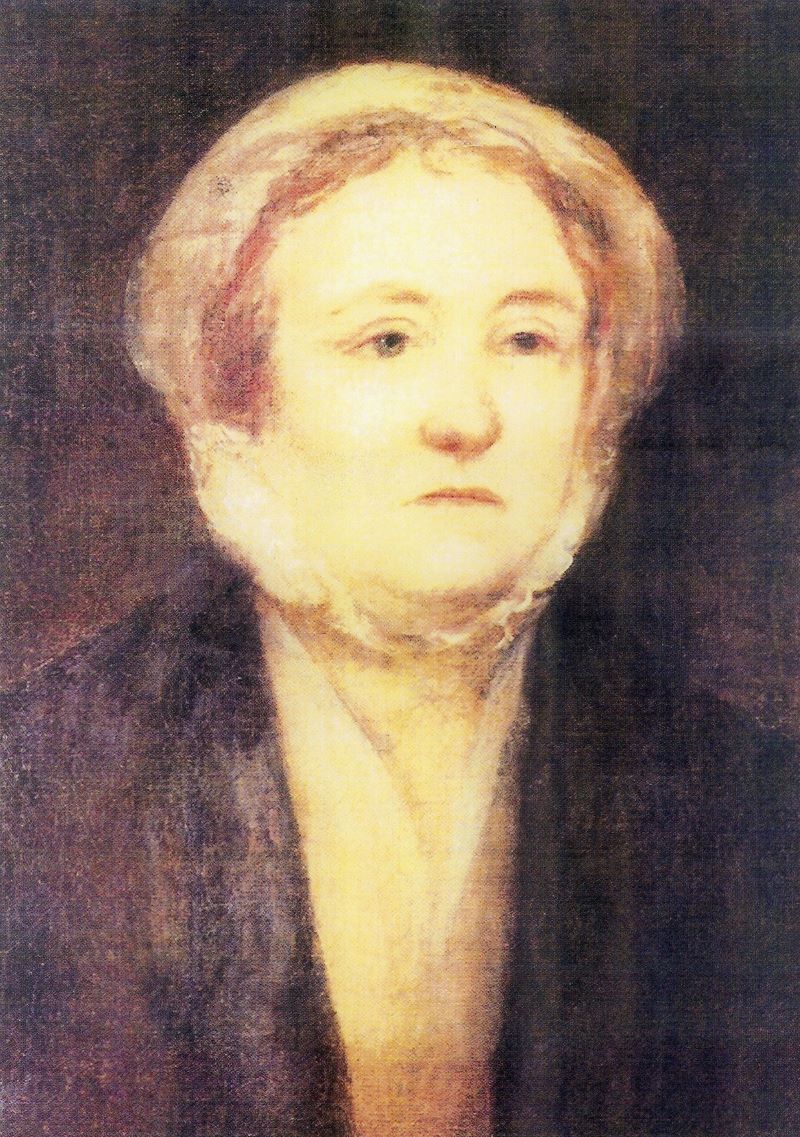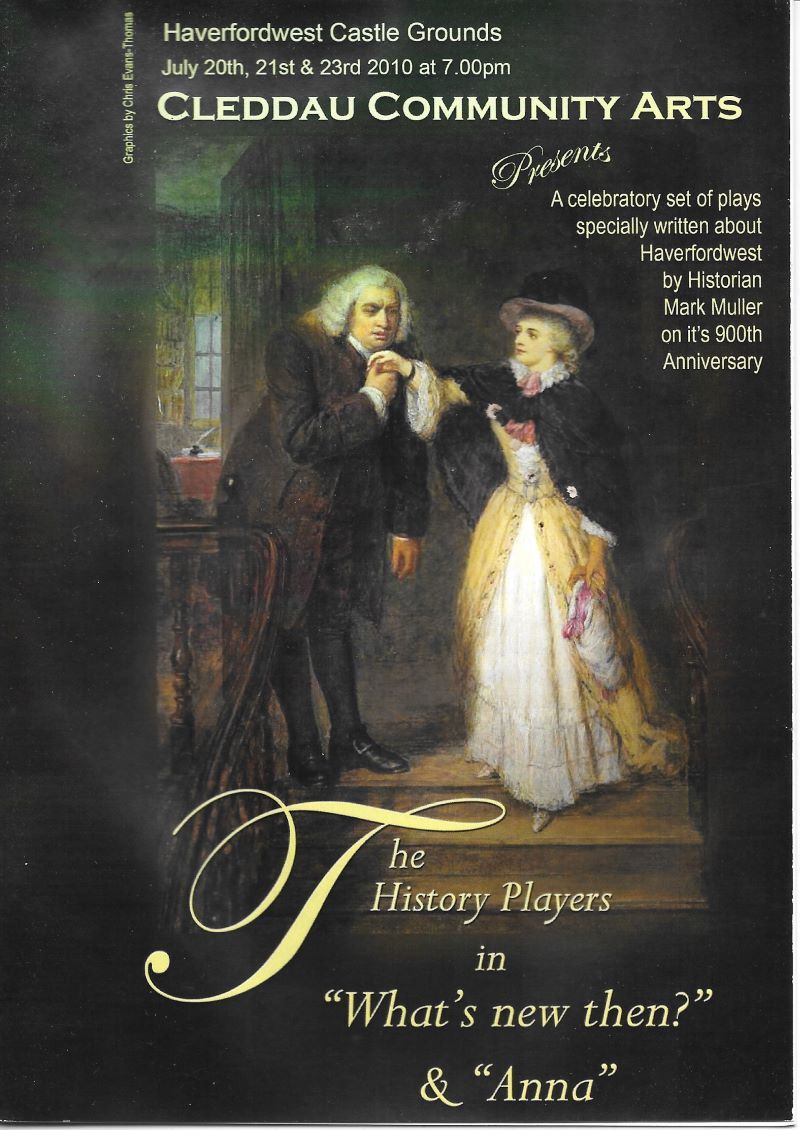Anna Williams is sometimes referred to as one of Rosemarket’s most famous residents that people have never heard of! Referenced in several books and academic articles, here we consolidate what we have researched to provide an overview of her life.
Anna Williams was born in 1706 in Rosemarket to Zachariah Williams (1668–1755), a scientist and physician, and his wife, Martha. Her father provided her with a wide artistic and scientific education, Italian and French. So far, we have not found any evidence as to where in the village they lived, though as in later life, Anna was supported by Lady Marion Philipps of Picton Castle, we can probably assume it was a fairly large and prosperous dwelling.
In 1726-27, the family moved to the Charterhouse, London, where Anna helped her father while he experimented with magnetism in pursuit of the longitude prize. She became his home-help when he became bedridden and hospitalised in 1745. Despite failing sight in the 1740s, Anna was able to sew, and in 1746 published a translation of a French life of the emperor Julian.
In 1748, her father was ejected from hospital and they appealed to Dr Johnson, who had taken an interest in Williams's experiments and assisted him in publishing his theory of longitude. Later, Dr Johnson also arranged for Samuel Sharp to operate on Anna's cataracts. After this failed, she became a member of his household, until just before her death, living with Dr Johnson in all his various residences.
The only exception is the period from 1759 to 1765, when he moved from Gough Street into the Inner Temple, during which time she lodged in Bolt Court, Fleet Street – there Dr Johnson drank tea with Anna "every night... before he went home, however late it might be, and she always sat up for him." In August 1763, Boswell proudly made good his "title to be a privileged man" by being "carried by Dr Johnson in the evening to drink tea with Miss Williams".
In 1765, Anna moved back into Dr Johnson's household in 7 Johnson's Court, Fleet Street, and then from March 1776 in 8 Bolt Court, supervising his household management and expenses from a ground-floor apartment in both houses. Regularly helping Dr Johnson when he entertained at home, she also accompanied him on visits, or if not, had a dish sent home to her by him. Knowing a variety of literary works, she could express herself well, and having lived long with Dr Johnson, knew his habits and how to draw him out into conversation, whilst Dr Johnson was “not above playfulness towards her”: Frances Reynolds records that he would "whirl her about on the steps" when visiting.
Anna had annual gifts of money from acquaintances, including Lady Philipps of Picton Castle, an old family friend, but this income was supplemented by Dr Johnson. For example, he arranged for David Garrick to give a benefit performance of Merope by Aaron Hill at the Drury Lane theatre on 22 January 1756 "for a gentlewoman deprived of her sight". In 1774, Dr Johnson helped with her application to Hetherington’s charity at Christ's Hospital, although this failed as Welsh applicants were ineligible.
As Anna grew old and frail she became more and more intolerant towards other members of the household, although this did not affect Dr Johnson's care for her. Anna died on 6 September 1783.
Dr Johnson wrote a prayer for her in her last illness, and after her death wrote, "Her curiosity was universal, her knowledge was very extensive, and she sustained forty years of misery with steady fortitude. Thirty years and more she has been my companion, and her death has left me very desolate”. His friends, while noting her peevishness, also acknowledged her learning and intelligence. Anna left £200 in stocks at her death, and £157.14s. in cash to the Ladies' Charity School, Snow Hill, London.
Her main publication was Miscellanies in Prose and Verse, published in 1766 as a quarto edition by Thomas Davies with Dr Johnson adding a preface and several prose and verse pieces. First advertised in 1750, there were waspish claims from Anna's friends that Dr Johnson had not put himself out in getting it produced, though it was moderately successful and earned the author about £150.
A dictionary of philosophical terms probably inspired by Dr Johnson's own Dictionary – begun in 1754 but abandoned despite Dr Johnson's support. (He wrote to Richardson the printer, "She understands chemistry and many other arts."). Occasional verses, such as "On the Death of Sir Erasmus Philipps, Unfortunately Drowned in the River Avon".
Her Dictionary of National Biography entry states that "as a writer Williams had craft but not genius... [a writer of] capable [and] effective if conventional... verses". Miscellanies is a collection of disparate pieces, verse, prose, and dramatic fragments. Alexander Pope is an influence, as seen in this quotation: For me, contented with a humble state, 'Twas ne'er my care, or fortune, to be great.
Her best known poem is probably ‘The Ant’, in which she hoped that we should all follow the selfless industry of the ant as an example to live our lives. Parts, as below, have often been quoted in Victorian tracts to encourage hard work without complaint.
The Ant, by Anna Williams
Turn on the prudent Ant, thy heedful eyes,
Observe her labours, Sluggard, and be wise.
No stern command, no monitory voice
Prescribes her duties, or directs her choice,
Yet timely provident, she hastes away
To snatch the blessings of the plenteous day.

Portrait of Anna Williams by Miss Frances Reynolds, circa 1765
In 2010, historian Mark Muller wrote a play about the life of Anna Williams. Entitled ‘Anna’, it was performed at Haverfordwest Castle in July of that year by Cleddau Community Arts as part of the town’s 900th anniversary celebrations. Mark’s book ‘People who shaped Haverfordwest’ also features an excellent account of Anna’s life.

Rosemarket Local History Society would like to thank Mark Muller for this kind permission to include the image of the front cover of the 2010 Programme in this article. Thanks also to Dr Simon Hancock MBE for his assistance in our research.
A variety of other sources were also utilised for the research on this article, including:
Iona Montanaro – private doctoral thesis research 2024
The County History of Pembrokeshire – 18thc. 2018
Nicolle, Geoffrey. Rosemarket – A Village Beyond Wales. Dyfed Cultural Services Dept.
Jones, William R. "Williams, Anna". Oxford Dictionary of National Biography (online ed.).
Boswell, Life, Dr Johnson.
J. Hawkins, The life of Samuel Johnson.
Lady Knight, 'Anecdotes and remarks', in Johnsonian miscellanies.
J. P. Phillips, 'Mrs Anna Williams'
Richard Fenton, A Historical Tour through Pembrokeshire (1811)
Johnsonian miscellanies, ed. G. B. Hill, 2 vols. (1897)
The letters of Samuel Johnson, ed. R. W. Chapman
Nichols, Lit. anecdote
G. W. Stone, ed., The London stage, 1660 - 1800